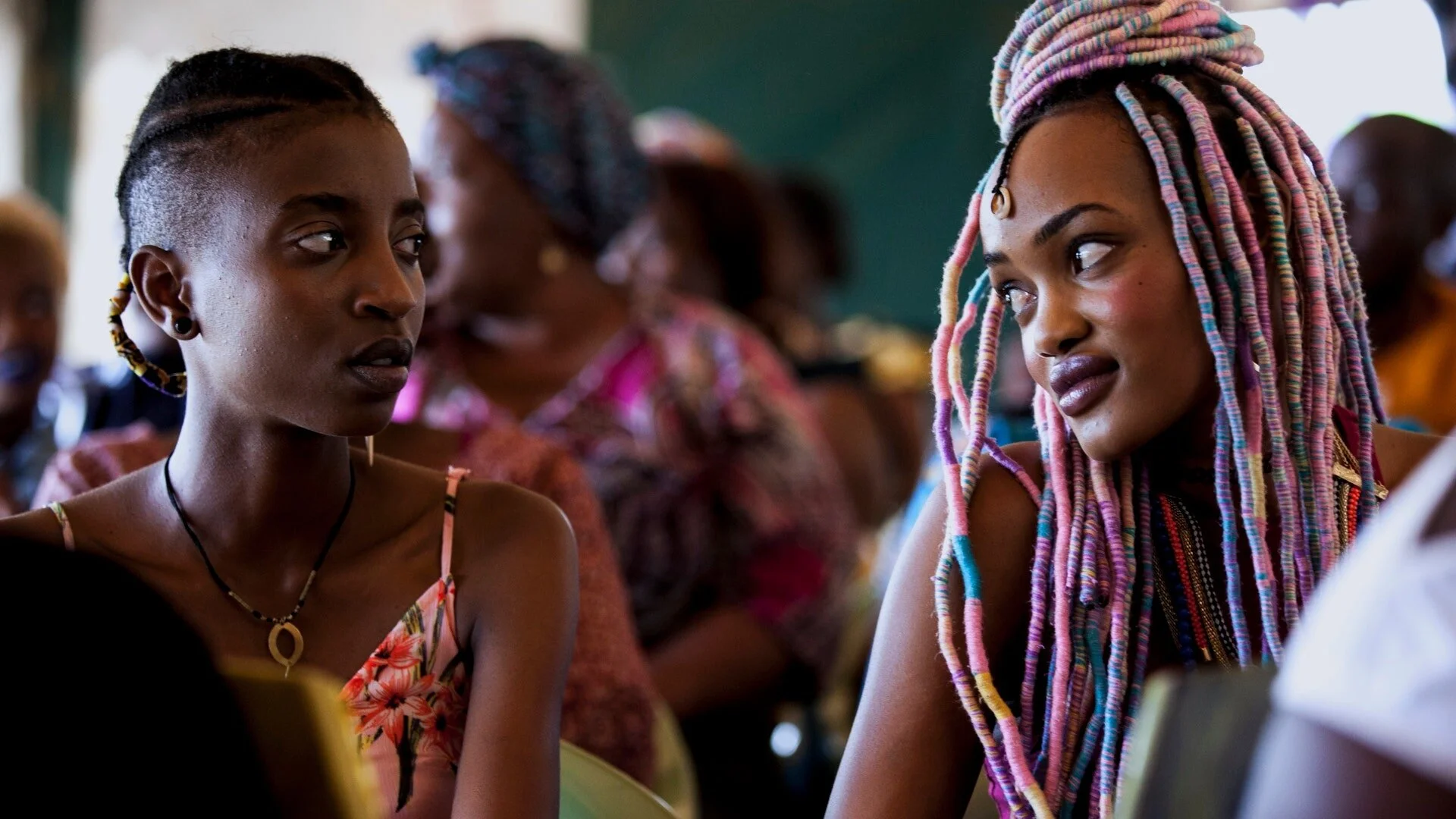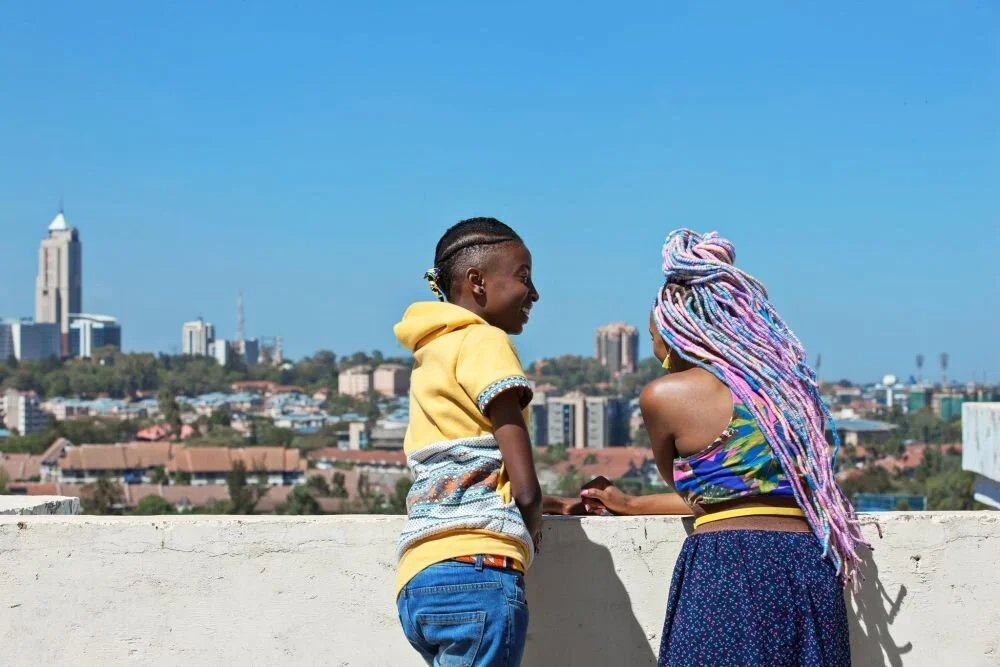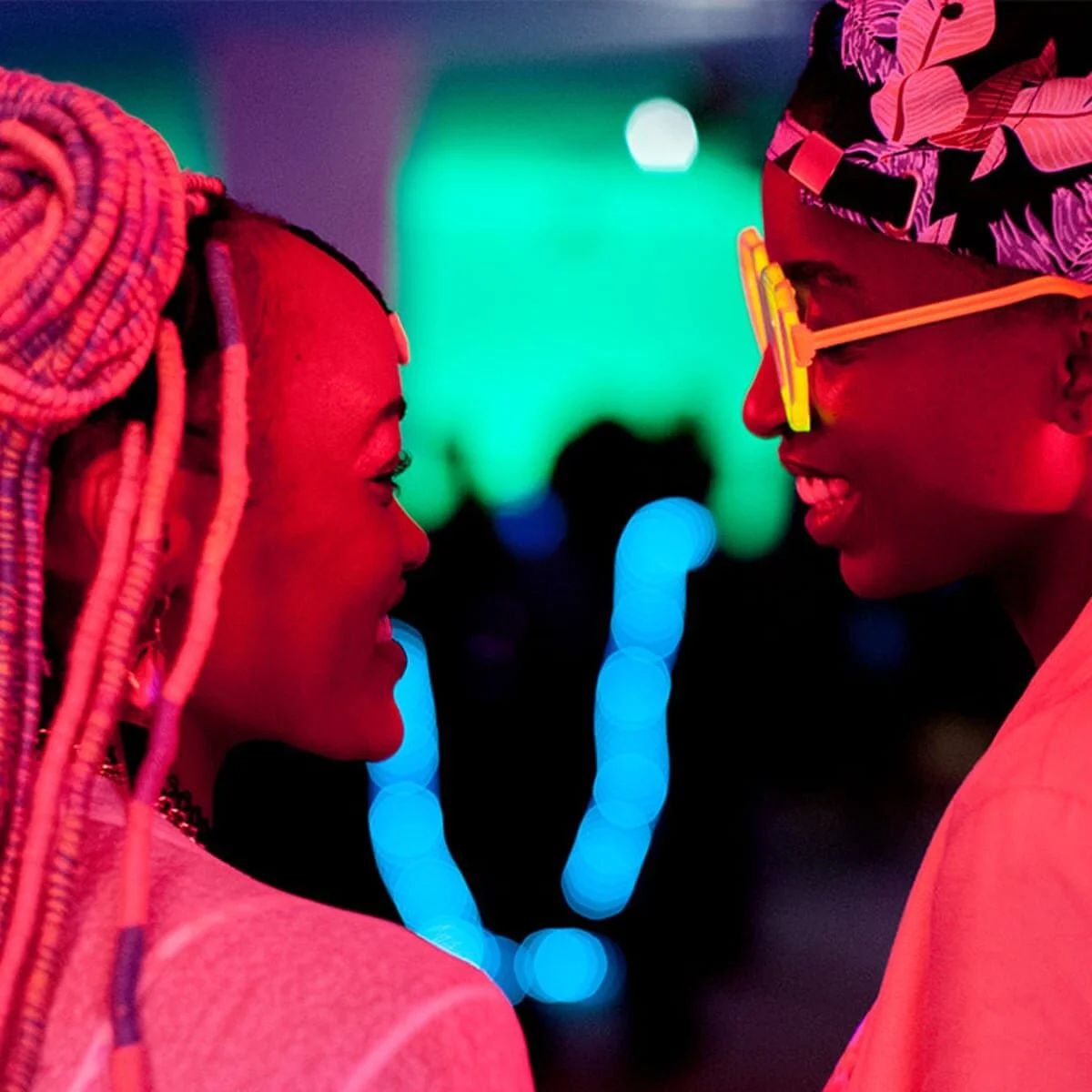rafiki (2018)
A PORTRAIT OF LOVE PAINTED IN BOLD, VIBRANT HUES.
Banned in its hometown of Kenya, Wanuri Kahiu’s second feature Rafiki is a noble tale of impossible love. In a country where homosexuality is illegal, Kahiu and her cast and crew need to be commended for their admirable efforts in creating a film with a powerful message that goes against its countries legal system.
Set in the capital city of Nairobi, Rafiki tells the tale of young love, the type where you feel intense overpowering emotions, totally consumed and subconsciously blinded. Kena (Samantha Mugatsia) is a local teenage girl, but she’s not like most girls in the city. Kena spends her days playing football and hanging out with Blacksta (Neville Misati) and his mates who consider her to be one of the ‘boys’. Then there is Ziki (Sheila Munyiva) a flamboyant and vibrant young woman who hangs with her girl possie where they can be seen on most days practicing choreographed dance moves on the streets.
As the story unfolds we see both Kena and Ziki often sharing glances with each other accompanied with a shy smile. Glances soon turn into small-talk which turns into regular catch-ups and soon enough the pair’s relationship ignites into passionate love. However; they try to conceal this passion as their fathers are rival candidates for the upcoming local election and in a city where homosexuality is illegal, this relationship would surely ruin both their father’s image and reputation. Whilst the girls try to keep their love a secret from the prejudice and ignorance that engulfs the city, it’s only a matter of time before someone sees them. When a local shop owner catches on and spreads the rumour, the girls’ lives, along with their families slowly start to come crumbling down.
Rafiki makes a bold effort to address a number of issues and whilst it seems messy with uneven pacing at times the powerful message of equality still stands tall. With such a quick run time of 83 minutes, the chemistry between the two leads is unfortunately compromised to make way from some unnecessary sub-plots however; there are moments when the romance feels genuine and these moments are sure to warm the hearts of many.
Mugatsia and Munyiva are great in their first-time acting roles and show real promise for the future. At times their delivery and interactions can seem slightly corny for lack of a better word, but that ultimately comes down to Kahiu’s script which at times doesn’t feel as strong as it could.
Kahiu and cinematographer Christopher Wessels do a great job of adding texture to the script through vibrant Kenyan backdrops which add real authenticity to the story. Rafiki is not the most original story but it sure is an important one. Whilst it has its flaws it still has a powerful and touching message at its core. An essential film that stands as a beacon for LGBTQ cinema and a step in the right direction for African cinema.
★★☆☆☆
20 APRIL 2021



